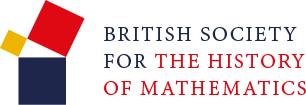Accessibility & Diversity Guidelines for BSHM Members
Accessibility & Diversity Guidelines for BSHM Members
Introduction
This document, written by the Accessibility & Diversity Working Group, is intended as a set of guidelines for BSHM members who wish to improve the accessibility and diversity of their actions. It is recommended that these be followed when acting in some capacity affiliated with the society. Please note that nothing here is mandatory or static. We welcome feedback on the helpfulness of these guidelines and suggestions for improvements; please email us.
BSHM Events
When organising a BSHM event, or contributing a BSHM component to an event, please try to:
- Consider potential accessibility and diversity requirements when conducting a risk assessment.
- Consider factors like time zones, working patterns, attendance costs, and caring commitments of likely participants when scheduling events.
- Seek the use of accessible venues for in-person events: ramps, induction loops, level of background activity, ease of finding, noise.
- Ask attendees for accessibility and dietary requirements.
- Actively seek a good balance across gender, ethnicity, and age of contributors (speakers, chairs, etc) at events.
- Ask presenters to explain in words any purely visual aspects and illustrate any purely spoken aspects, for understandability through sight or sound alone.
- Take measures like enabling automatic transcription (closed captions) for online events or recordings.
- Include participants from oppressed groups, where relevant and appropriate.
- Acknowledge problematic / complex aspects of the history involved, even if not qualified or able to address them in detail.
For example:
- Consider the other activities of mathematicians,
- Investigate the applications of the mathematics,
- Look into sources of money that supported mathematics.
BSHM Publications
When writing for, editing, or refereeing a BSHM publication please try to:
- Acknowledge problematic / complex aspects of the history involved, even if not qualified or able to address them in detail, including guidance for referees.
- For work that covers oppression seek participation from oppressed groups or reference material produced by them.
- Consider implications of themed publications / collections, for example in an editorial, or soliciting an additional contribution if some areas are not covered.
When representing the BSHM
In activities supported by or associated with the BSHM, or when using the name of the BSHM in communications, please try to:
- Be kind,
- Be considerate and respectful of diverse perspectives,
- Take care when commenting on potentially controversial issues,
- Actively seek marginalised voices,
- Listen and learn from others, including oppressed groups.
Want to get involved?
If you have comments or suggestions, or want to join the working group, please get in touch.
